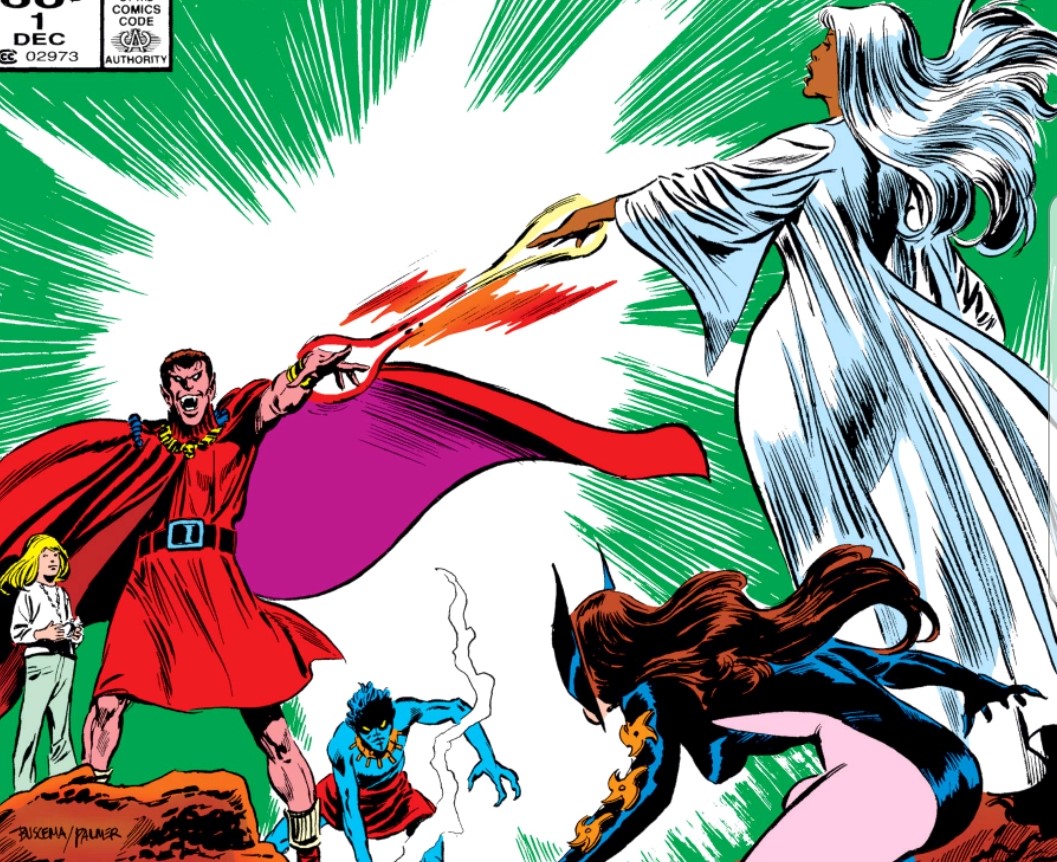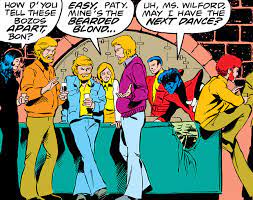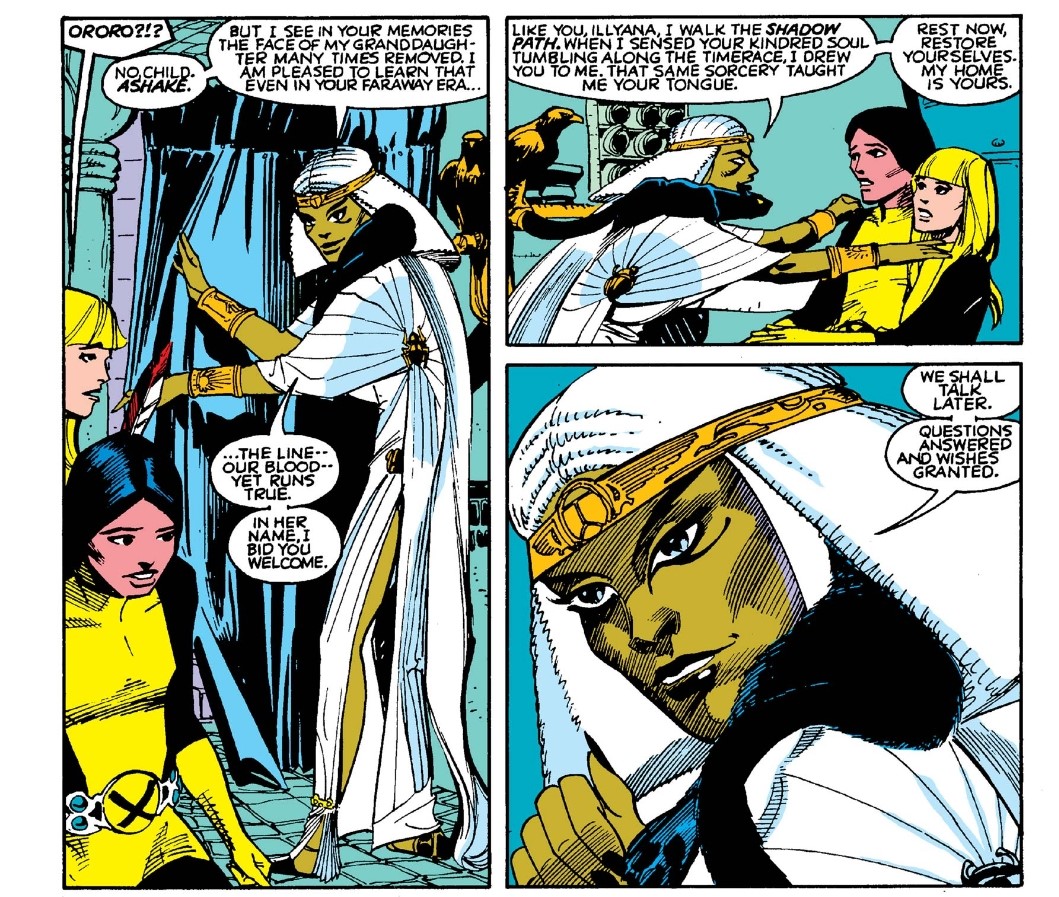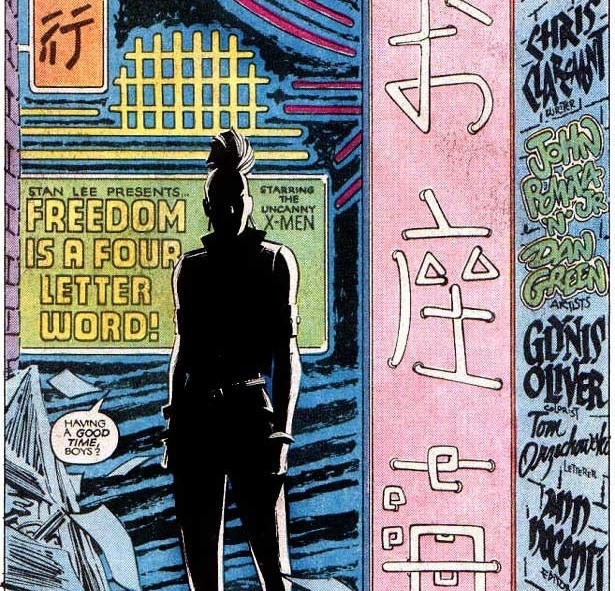There’s an argument to be made that many of the unique ideas that manifest in Uncanny X-Men, including the codename and backstory of Illyana Rasputin, come forward from a small occult store in Chelsea and the culture surrounding it. #xmen 1/10 

A key member of this culture is Bonnie Wilford, aka Greymalkin, alleged to be a prominent Wiccan High Priestess in NYC, and known to be a skilled jeweller, a traffic manager for Marvel (and occasional colorist) and Claremont’s first wife. 2/10 

Wilford also teamed with Claremont to compose a sort of occult story bible for future Dr. Strange authors to re-outline the occult mythology surrounding that character – a mythology still in use extensively today, including the MCU. 3/10 

In 1976, Herman Slater opened “Magickal Childe” on 35 West 19th St in Chelsea. Chelsea at the time was known for being a thriving artistic community with notable connections to the LGBTQ+ community. Wilford supplied a substantial portion of the jewellery sold on site. 4/10 

The shop further sold all manner of occult materials, and allegedly made some of its money through minor cons (such as selling leftover chicken bones to would-be necromancers as ‘human fingers’) and through a slightly larger minor con involving HP Lovecraft’s ‘Necronomicon.’ 5/10 

More importantly, in addition to sales, the Magickal Childe store had a room in the back that served as a Wicca temple and school that played a massive role in cultivating NYC’s Wicca scene - with Wilford/Greymalkin (in many accounts) central to that development. 6/10 

Accounts of Claremont’s direct participation in the Magickal Childe culture vary pretty wildly, but we know he is said to have been esteemed for surfacing the group’s appreciation of BDSM culture in UXM and Claremont was a well-known entity to everyone in the scene. 7/10 

As I said, this is speculation, because historical accounts are hard to come by, unverified, and mired in all manner of distortion at the hands of the taboos surrounding Wicca and the occult, but this again points to a somewhat tragic historical erasure: 8/10 

It is pretty clear that Wicca played a role in many of the defining creative choices of the Claremont run, choices that altered the course of comics history itself, maybe media history. The fact that we can barely access this history is therefore a tragic blindspot. 9/10 

The store closed in 1999 and Wilford passed away in 2014, but Claremont had a key point of access to the central hub of Wicca culture in NYC through the store, and that influence is readily evident on the pages of UXM. There’s a lost history that needs to be recovered. 10/10 

• • •
Missing some Tweet in this thread? You can try to
force a refresh






















